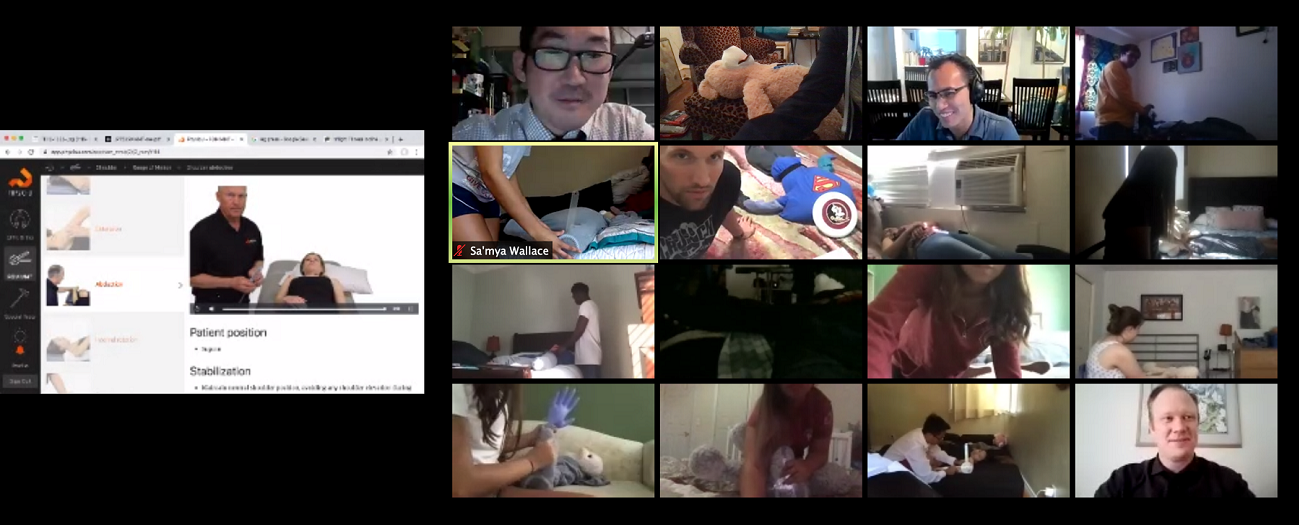
For the past three decades, the Summer Health Professions Education Program (SHPEP) has introduced more than 30,000 college students to careers in the health professions. Formerly known as the Summer Medical and Dental Education Program (SMDEP), SHPEP is a free transformative summer experience that offers opportunities for undergraduate students to explore a range of health careers, including medicine, dentistry, nursing, optometry, pharmacy, physical therapy, and public health. SHPEP scholars have a legacy of success: Over 65% of scholars who apply to medical or dental school are accepted.
As you can imagine, the COVID-19 pandemic significantly impacted SHPEP this year. On March 13, the SHPEP National Program Office (NPO) announced that they would be teleworking until further notice. To better illustrate the timing of that decision, the mandate for remote work was made one week before SHPEP scholar decisions were released, and it was unclear whether it would be feasible to move forward with the program this summer. At that point, the NPO scheduled virtual meetings with each program site to explore options and possibilities for implementing SHPEP in light of physical distancing recommendations and the closure of some campuses. The feedback on these calls with SHPEP program sites had one consistent sentiment: “Let’s implement the program virtually.”
After the discussions with program sites, the NPO then surveyed accepted scholars to determine whether they would be interested in participating in a virtual program and what limitations they would have (e.g., laptop accessibility, a necessity to work to support family, internet connectivity). The results of the survey showed that most scholars were committed to participating in the program, even if it was presented virtually. In a traditional year, 960 students participate in SHPEP; in 2020, 934 students chose to participate in a virtual program. Data from the scholar surveys were shared with the program sites, who then addressed scholar accessibility issues by providing loaner laptops, internet hot spots, and developing guidance and support for those who needed to work to help support their families.
Program sites worked with their institutions and other collaborators to develop an online curriculum that features both synchronous and asynchronous learning methods. Scholars are located all over the United States, including Guam, Hawaii, and Puerto Rico, and it was critically important to meet students where they were and not unduly burden them. To that end, the NPO worked with the program sites to trim a six-week in-person residential program into a four-week online program. Even in a virtual setting, program sites were able to offer students a variety of academic and career experiences, including:
- Academic enrichment in the basic sciences and quantitative topics.
- Learning and study skills development, including methods of individual and group learning.
- Career development sessions directed toward exploration of the health professions, the admissions process, and the development of an individualized education plan.
- A financial literacy and planning workshop that teaches students about financial principles and management strategies.
- A health policy seminar series to expose scholars to current health policy issues, the policy making process and analysis, health care financing, and the social determinants of health.
- An introduction to interprofessional education that addresses effective collaboration across health professions.
Given the current climate of our nation, program sites also administered sessions centered on racial issues and provided scholars with mentors who served as an additional resource. Mentors are current graduate health professions school students who helped SHPEP scholars think through racial themes and what they learned in the program. The adaptability of the program allowed students to learn and grow personally, academically, and professionally even amid a global pandemic.
SHPEP is a completely free experience for participating students. To be eligible for the program, applicants must be a freshman or sophomore college student when applying. Be sure to review the other eligibility requirements, how to apply, and more information about the program by visiting shpep.org.
The application for summer 2021 will be available on Nov. 1!